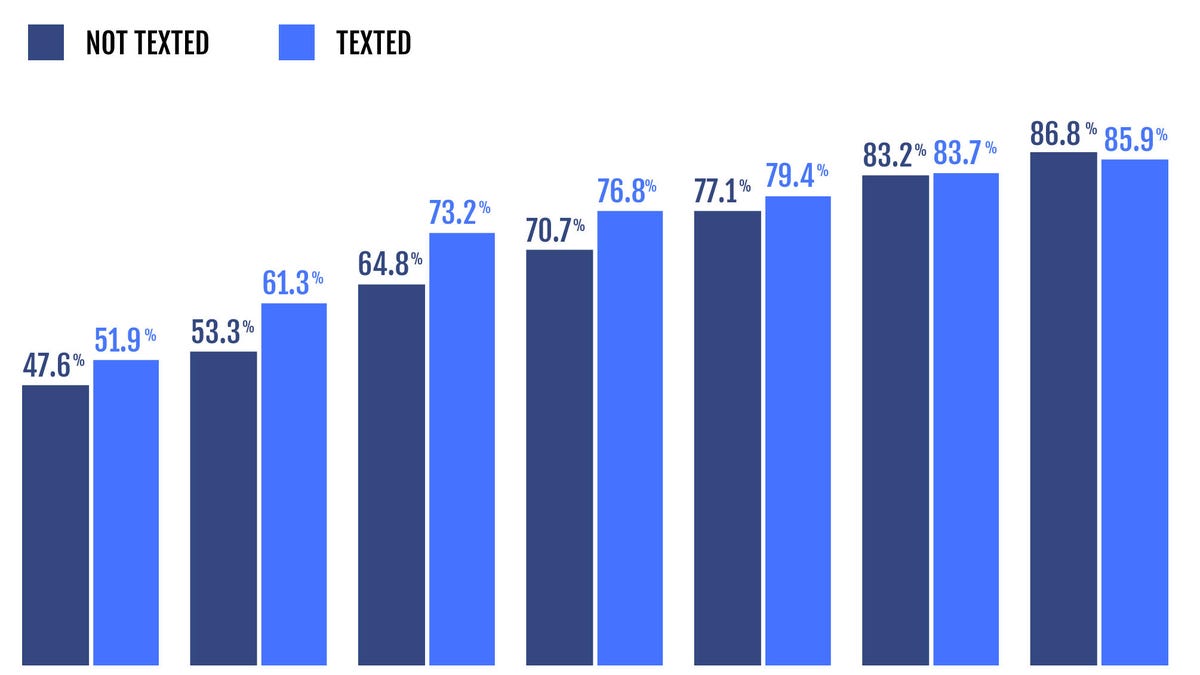Political campaign texts are working, researchers say
Goodbye robocalls, hello unsolicited political campaign texts.

For almost every age group included in the study, texting improved voter turnout.
A new report from Democratic technology company Tech for Campaigns has found that people who received text messages from election campaigns were 1% more likely to vote. The company's researchers found Democratic campaigns and organizations sent 350 million texts in 2018. That's six times more than were sent in 2016 and 2017.
"While 1% may not seem like a lot, competitive races, especially state legislative races, are decided by just tens or hundreds of votes," the report reads. "In one state alone, the difference between the texted and untexted voters in the districts in which TFC ran texting programs would have been enough to win five of the seven races Democrats lost in 2018."
Tech for Campaigns added that registered voters aged 27 to 50 turned out at a rate almost 8% higher than those in that same age group who weren't texted.
People who received text messages with candidate or district-specific issues were 8.2% more likely to vote, Tech for Campaigns found. Those who responded to the text messages were 9.6% more likely to vote than those who didn't respond.

